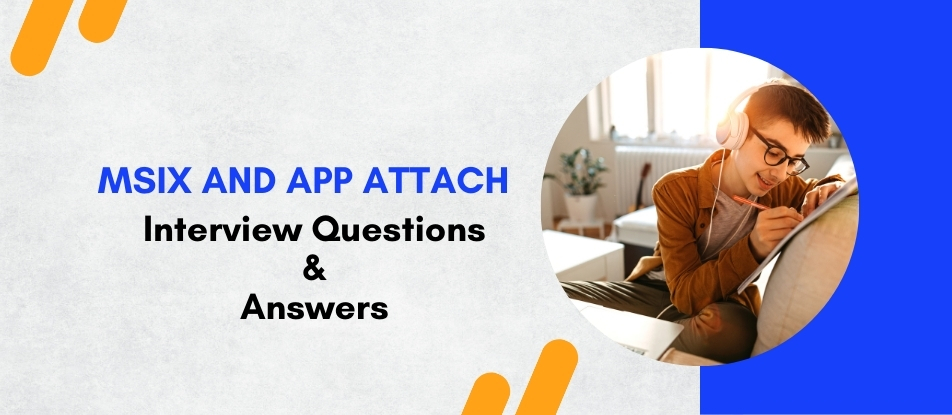
Master modern application deployment with our “MSIX and App Attach Online Training Course.” This comprehensive 60-hour program covers MSIX packaging, App Attach techniques, and integration strategies for seamless software delivery in virtual environments. Ideal for IT professionals and system administrators, you'll gain hands-on experience, enhance deployment efficiency, and ensure scalable, secure application management. Enroll today to advance your expertise!
MSIX and App attach Interview Questions Answers - For Intermediate
1. What is MSIX, and how does it differ from traditional MSI packaging?
MSIX is a modern Microsoft application packaging format that unifies MSI, APPX, and other formats. It offers enhanced reliability, security, and streamlined deployment. Unlike MSI, MSIX supports containerization, ensuring apps run in isolated environments, reducing conflicts, and improving system stability.
2. Describe the main components of an MSIX package.
An MSIX package includes application binaries, a manifest file detailing metadata, dependencies, capabilities, digital signatures for security, and optional resource files. These components ensure proper installation, management, and updates while maintaining system integrity and security.
3. What are the benefits of using App Attach in virtual desktop environments?
App Attach enables dynamic application delivery in virtual desktops without traditional installation. Benefits include reduced image size, simplified management, faster updates, and improved user experience by streaming apps on-demand, enhancing scalability and flexibility in virtual environments.
4. How does MSIX ensure application integrity and security?
MSIX uses digital signatures to verify package authenticity and integrity. The manifest defines application permissions and dependencies, ensuring controlled access. Additionally, MSIX containers applications, isolating them from the system and other apps, minimizing security risks, and preventing unauthorized modifications.
5. What is the process for converting an existing MSI package to MSIX?
Converting an MSI to MSIX involves using the MSIX Packaging Tool. Steps include capturing the application installation in a clean environment, generating the MSIX package with required metadata, testing the package for functionality and compliance, and then signing it digitally before deployment.
6. Explain how App Attach integrates with Microsoft Endpoint Manager.
App Attach integrates with Microsoft Endpoint Manager by managing application packages centrally. Administrators can assign App Attach packages to users or device groups, control deployment policies, and monitor application usage. This integration streamlines application delivery and ensures consistent deployment across the organization.
7. What are the key differences between MSIX and App Attach?
MSIX is a packaging format for distributing and managing applications, ensuring consistency and security. App Attach is a delivery mechanism, often used in virtual environments, that streams applications on-demand. MSIX focuses on packaging, while App Attach focuses on dynamic application delivery and management.
8. How does MSIX handle application updates?
MSIX supports differential updates, allowing only changed components to be downloaded, reducing bandwidth and deployment time. It ensures seamless updates by maintaining the app state and settings. Additionally, MSIX integrates with update services like Microsoft Store for streamlined and automated update distribution.
9. What prerequisites are needed to use App Attach in a Windows Virtual Desktop environment?
Prerequisites include a supported Windows Virtual Desktop setup, proper licensing, access to Microsoft Endpoint Manager or equivalent management tools, and applications packaged for App Attach. Additionally, network configurations must support streaming and access to shared storage for application packages.
10. Describe how MSIX supports containerization of applications.
MSIX packages applications in a container that isolates them from the system and other applications. This containerization ensures dependencies are managed within the package, prevents conflicts, and enhances security by limiting access to system resources, leading to more stable and reliable application performance.
11. What tools are available for creating and managing MSIX packages?
Tools include the MSIX Packaging Tool for creating packages, Visual Studio for developing MSIX applications, the MSIX Core for compatibility with older Windows versions, and PowerShell cmdlets for automation and management. These tools facilitate the packaging, testing, deployment, and maintenance of MSIX applications.
12. How does App Attach improve application scalability in virtual environments?
App Attach allows applications to be delivered dynamically to virtual desktops, enabling easier scaling as user demands change. Since applications are not installed directly on each VM, administrators can add or remove apps quickly, supporting a larger user base without extensive infrastructure modifications.
13. Can MSIX packages be deployed on non-Windows platforms?
MSIX is primarily designed for Windows. However, through MSIX Core, there is partial support for running MSIX packages on Linux and macOS. MSIX Core allows for containerized execution, but full feature parity and support are limited compared to native Windows deployment.
14. Explain the role of digital signatures in MSIX packages.
Digital signatures authenticate the source of the MSIX package and ensure its integrity. They prevent tampering and verify that the package has not been altered since signing. This security measure builds trust, ensures safe deployment, and complies with organizational security policies.
15. How does App Attach handle application dependencies?
App Attach packages include all necessary dependencies within the package. When the application is streamed to a user’s session, dependencies are loaded alongside, ensuring the application runs correctly without requiring additional installations or configurations on the virtual desktop.
16. What are the licensing considerations when using App Attach?
Licensing for App Attach requires appropriate virtualization and application licenses, such as Windows Virtual Desktop licenses and licenses for each application delivered. It's essential to comply with vendor licensing terms for both the virtualization platform and the applications being delivered via App Attach.
17. How does MSIX support enterprise application management?
MSIX provides centralized packaging, deployment, and update mechanisms compatible with enterprise management tools like Microsoft Endpoint Manager. Features like version control, secure deployment, and rollback support facilitate efficient management of applications across large organizations.
18. What challenges might arise when migrating to MSIX and App Attach?
Challenges include compatibility issues with legacy applications, the need for repackaging existing software, training for IT staff, ensuring infrastructure supports App Attach, and managing digital signatures and security. Additionally, testing thoroughly to prevent disruptions during the migration is essential.
19. How does MSIX handle application rollback in case of failed updates?
MSIX supports transactional updates, meaning if an update fails, the previous version is automatically restored. This rollback capability ensures application stability and minimizes downtime by reverting to a known good state if issues occur during the update process.
20. What best practices should be followed when deploying MSIX packages in an organization?
Best practices include thoroughly testing packages before deployment, using digital signatures for security, leveraging automation tools for consistency, maintaining proper version control, integrating with enterprise management systems, and planning for regular updates and support to ensure smooth application lifecycle management.
MSIX and App attach Interview Questions Answers - For Advanced
1. How does MSIX improve application deployment compared to traditional installers like MSI?
MSIX provides a unified packaging format that ensures reliable installations, automatic updates, and better security through containerization. It supports both UWP and Win32 apps, offers transactional installations to prevent corruption, and simplifies deployment across various environments, enhancing consistency and manageability over traditional MSI installers.
2. Explain the role of App Attach in Virtual Desktop Infrastructure (VDI).
App Attach dynamically delivers applications to virtual desktops by attaching virtual application layers at logon. This approach separates applications from the base image, reducing image sprawl, simplifying updates, and enabling flexible application management. It enhances scalability and user experience in VDI environments by providing on-demand access to applications without modifying the base OS image.
3. What are the key components of an MSIX package and their functions?
An MSIX package includes a manifest file (defines app metadata and dependencies), the application binaries, assets (icons, images), certificates for signing, and optional scripts for installation. The manifest specifies installation behavior, capabilities, and required permissions, ensuring the package is secure, properly configured, and compatible with the target environment.
4. Describe the process of converting an existing Win32 application to MSIX.
Conversion involves using the MSIX Packaging Tool to capture the application's installation, defining the package manifest with necessary dependencies and configurations, ensuring file system and registry changes are accurately mapped, signing the package with a trusted certificate, and testing the MSIX package for functionality and compliance before deployment.
5. How does App Attach handle application updates and versioning?
App Attach manages updates by deploying new application layers without altering the base image. Versioning is handled through distinct VHD/X files for each application version. Administrators can assign or update application layers centrally, ensuring users receive the latest versions seamlessly upon next logon, minimizing downtime, and simplifying version control.
6. What security features does MSIX offer to protect applications?
MSIX ensures security through package signing with digital certificates, enforcing application isolation via containerization, restricting access to system resources based on declared capabilities, and supporting integrity checks. These features prevent tampering, reduce vulnerabilities, and ensure that only trusted applications are installed and executed.
7. Compare MSIX with other packaging formats like AppX and MSI in terms of containerization.
MSIX extends AppX by supporting both UWP and traditional Win32 apps, offering enhanced containerization similar to AppX for isolation. Unlike MSI, which lacks built-in containerization, MSIX ensures applications run in a controlled environment, reducing conflicts and improving stability. MSIX provides transactional installs and better rollback capabilities compared to both AppX and MSI.
8. How does App Attach integrate with Microsoft Endpoint Manager for application delivery?
App Attach integrates with Microsoft Endpoint Manager by allowing administrators to publish application layers through Intune or Configuration Manager. Policies are configured to assign specific application VHD/X files to user sessions, enabling seamless delivery and management of applications within virtual desktops. This integration streamlines deployment, monitoring, and updating processes.
9. What challenges might arise when implementing MSIX in a legacy application environment?
Challenges include compatibility issues with older applications not designed for containerization, limited support for certain system-level features, the need to modify installation processes, and ensuring all dependencies are correctly packaged. Additionally, thorough testing is required to address functionality discrepancies and performance impacts when transitioning legacy apps to MSIX.
10. Explain how differential updates work in MSIX and their benefits.
Differential updates in MSIX involve distributing only the changes between package versions rather than the entire package. This reduces bandwidth usage, speeds up update deployment, and minimizes storage requirements. It enhances efficiency, especially for large applications or environments with limited connectivity, ensuring faster and more reliable updates.
Course Schedule
| Mar, 2026 | Weekdays | Mon-Fri | Enquire Now |
| Weekend | Sat-Sun | Enquire Now | |
| Apr, 2026 | Weekdays | Mon-Fri | Enquire Now |
| Weekend | Sat-Sun | Enquire Now |
Related Courses
Related Articles
Related Interview
Related FAQ's
- Instructor-led Live Online Interactive Training
- Project Based Customized Learning
- Fast Track Training Program
- Self-paced learning
- In one-on-one training, you have the flexibility to choose the days, timings, and duration according to your preferences.
- We create a personalized training calendar based on your chosen schedule.
- Complete Live Online Interactive Training of the Course
- After Training Recorded Videos
- Session-wise Learning Material and notes for lifetime
- Practical & Assignments exercises
- Global Course Completion Certificate
- 24x7 after Training Support


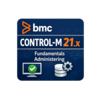
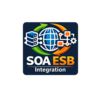





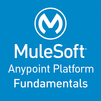
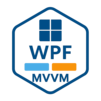
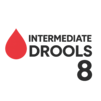
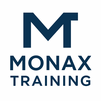

 Join our Live Instructor-Led online classes delivered by industry experts
Join our Live Instructor-Led online classes delivered by industry experts